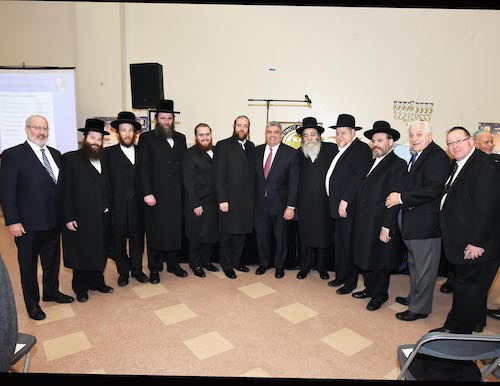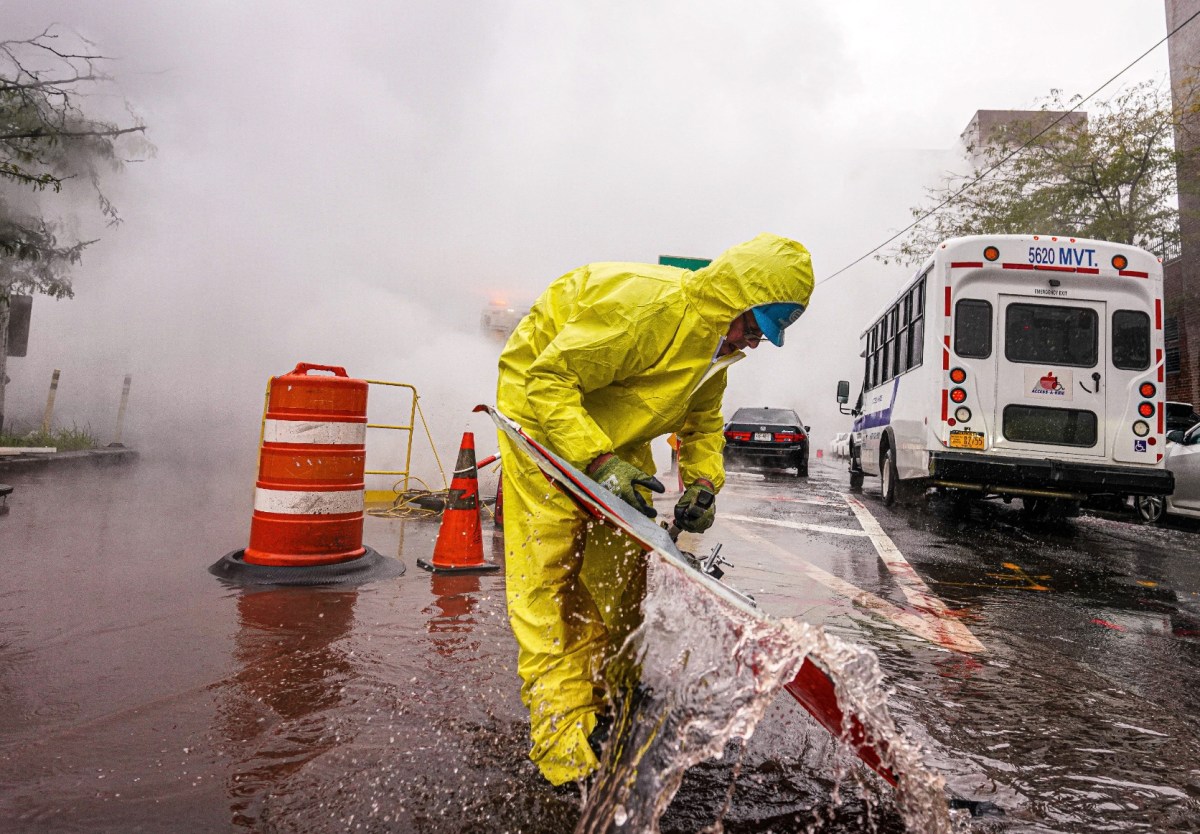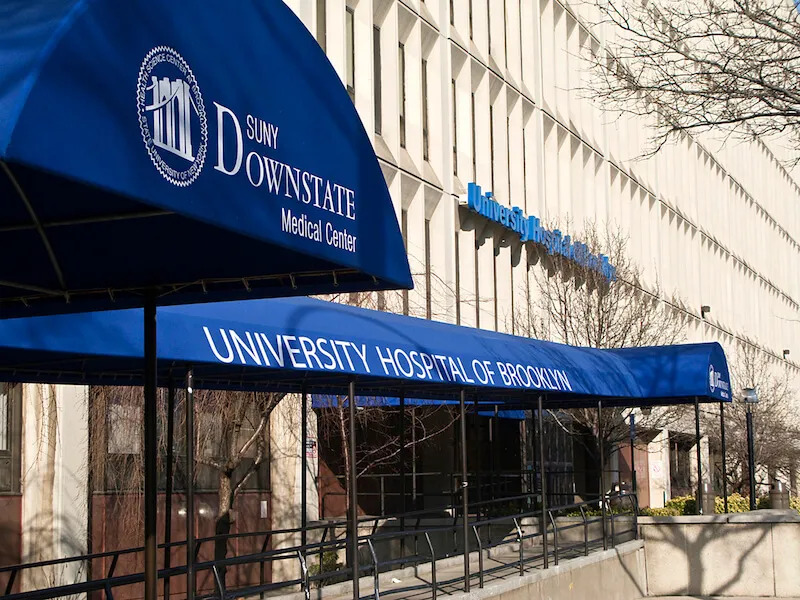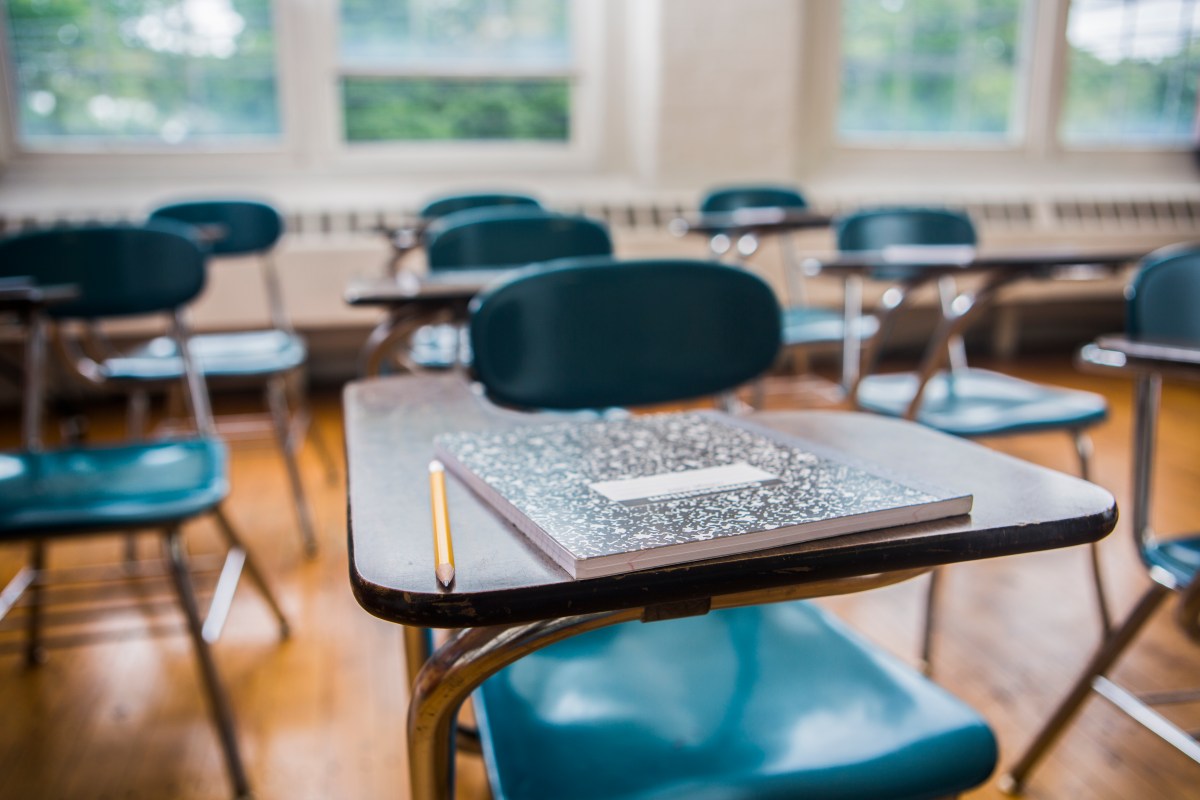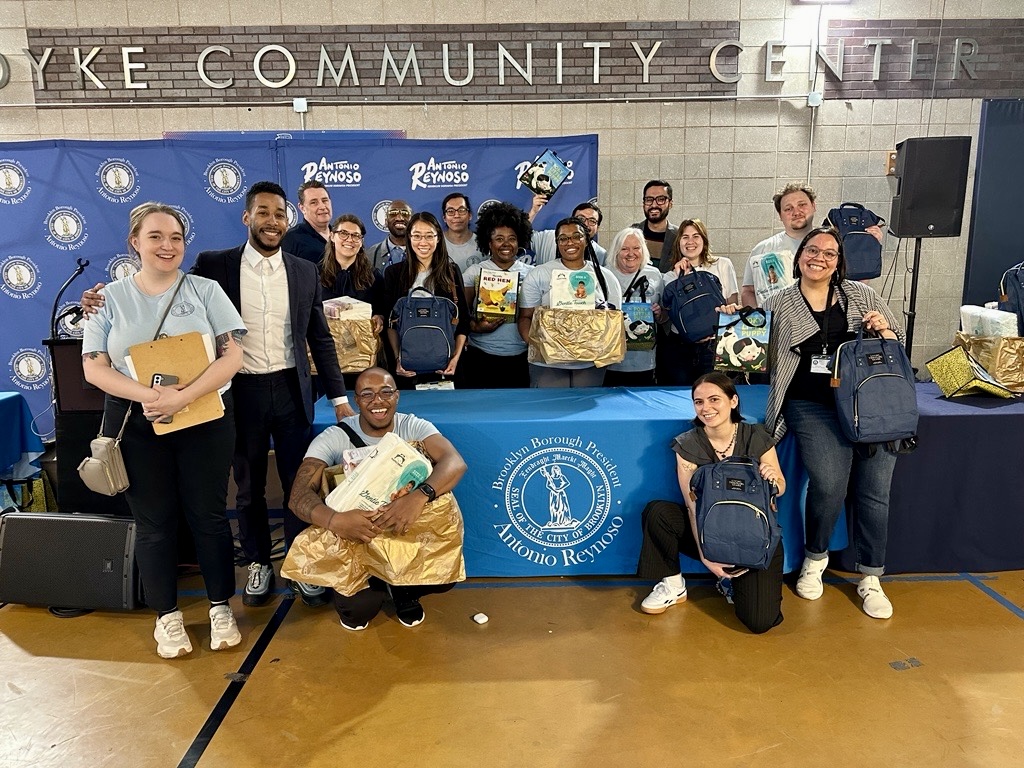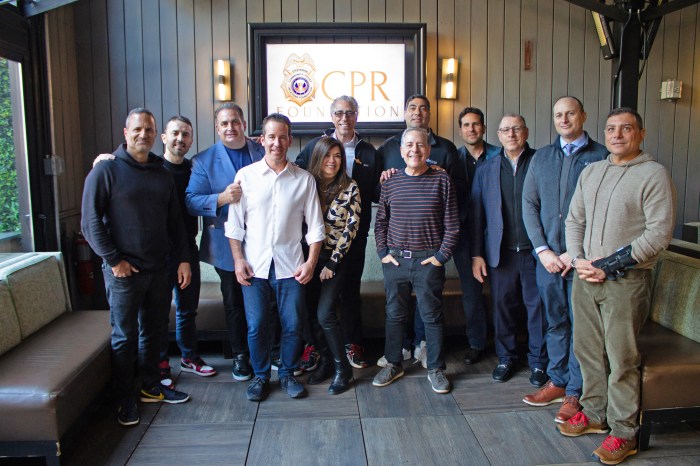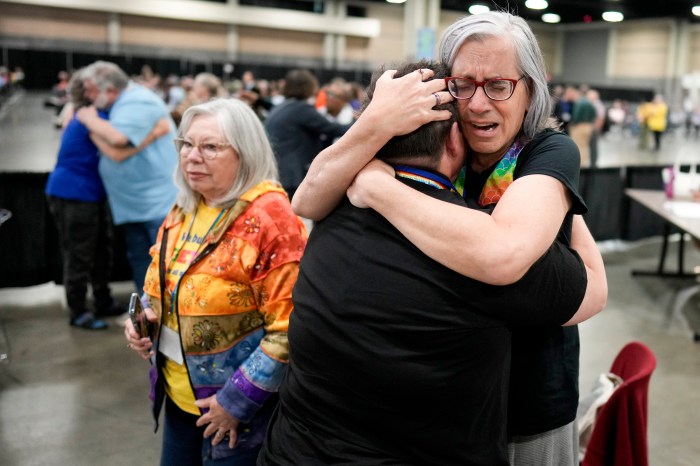Kings County District Attorney Eric Gonzalez came to the heart of Brooklyn’s orthodox and Hasidic Jewish community last night, and addressed the growing opioid epidemic, saying it is paramount that all communities work to eradicate the problem, each in their own way.
And when it was over, a number of the rabbis and community leaders in attendance thanked the DA for his approach in building partnerships with local organizations and yeshivas in combatting the epidemic.
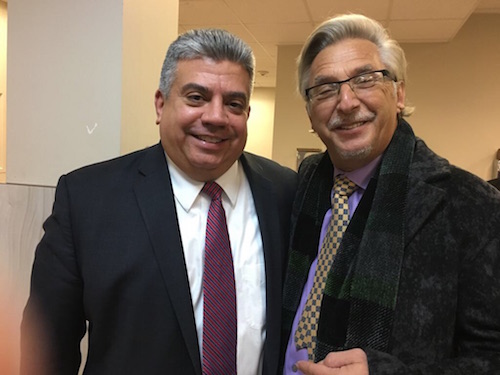
“We have lost and buried too many of our young teens to drug overdoses. The time to end this epidemic is now,” said Mark Meyer Appel, founder of the Bridge Multicultural Advocacy Project, and a religious Jew on the forefront of addressing both the opioid epidemic and incidents of sexual abuse in the religious Jewish community.
Gonzalez came to Borough Park as part of his office’s Pre-Hanukkah Celebration held at Bnos Zion Building, 1368 50th Street, in collaboration with Community Board 12.
“There’s a lot stigma in this [opioid addiction] and a lot of shame, and there have been a lot of rabbis in the past that don’t want to admit that there’s this issue happening in the community, but I think we’re so far beyond that now. There’s been so many overdoses last year and this year going on that we have to address the issue, and the issue is in every community,” said Gonzalez.
Gonzalez explained in detail a program his office has started called Brooklyn Clear, which works with the NYPD, where instead of people getting arrested and going through central Brooklyn booking and the court system when they get busted for hard drugs, the DA’s office will provide peer councilors to meet them at the local precinct, and give them an option to go right into treatment and in a program.
“It won’t always be an in-patient program. It could be out-patient, but it will start the process. What we will do is defer prosecution of their case and if they go into treatment I will decline to prosecute them so someone will not have a criminal record,” said Gonzalez.
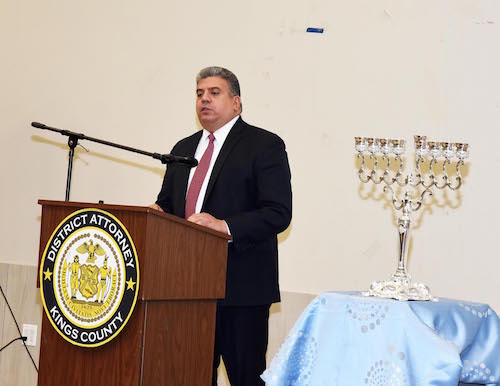
“In traditional drug courts what happen is the [arrested] person has to come in and plead guilty to possession of the drugs and so they get criminal records, but if they don’t complete it [drug rehabilitation program] they can wind up going to jail. This is a different process. The idea is to treat this as a health issue and not a criminal justice issue,” he added.
Gonzalez said in the religious Jewish community this means making sure the type of treatment facilities will be culturally sensitive.
“You have to be able to have kosher food there. You have to be able have the religious norms of the community otherwise people wont be successful. So we’re going to be building that sensitivity with different community organizations and making sure that each community has a place to go to, but for me, what I’m really excited about is that we’re makings sure we’re treating addiction,” said Gonzalez.
The frank discussion comes in the wake of a number of deaths in the religious Boro Park community in the past year, including that of Malky Klein, 20, whose tragic tale was profiled earler this year in KCP.

Among those in attendance, and who agreed more openness about social problems in the community is sorely needed was Kings County Civil Court Judge Ruchie Freier, the nation’s first Hasidic female judge and the keynote speaker at last night’s event.
“It’s all about education, education, education and understanding why kids are doing it [opioids],” said Freier. “They’re reaching out to self medication because they are hurting, and the answer is getting to the bottom of why they’re hurting.”
Also in attendance at the celebration was City Council Member-elect Kalman Yeger (D-Borough Park, Midwood, Bensonhurst, Gravesend, Sheepshead Bay), who refused to speak to KCP about the problem. He also did not return several emails and texts concerning any plans on addressing the opioid problem in the community or to even acknowledge that one existed.
However, Zvi Gluck, a religious Jewish social worker that runs Amudim.org a Manhattan-based organization working with at-risk religious Jews from around the world, said there has been between 35-40 overdose deaths among religious Jewish kids in Brooklyn in the past year.
“There is no reason why we don’t have mandatory drug awareness education and alcohol education in every yshiva – boys, girls, secular and Hasidic, and everything in between,” said Gluck, who did not attend the event, but who was represented there by his father.
“Imagine a school with two classes per grade, 25 kids per class, first thru 8th grade. Now imagine there will be one child that will get sick due to asbestos poisoning. I guarantee the parent body would force the school to get in contractor to remove the asbestos. By not teaching our children about drugs and alcohol we’re doing worse,” he added.
Gluck said he did speak to Yeger about the problem, and he seemed to be very interested in it, but it remains to be seen what if anything he will do to help at-risk kids.
State Senator Simcha Felder (D-Boro Park) takes this opioid addiction very seriously, and City Council Member David Greenfield (Yeger’s Democratic predecessor) took awhile to get involved, but did get some city agencies to open doors for us, Gluck said.
Gluck noted that despite criticism from some, the Orthodox Jewish community has more organizations that deal with these issues than any other minority groups in the world.
“In Brooklyn alone, I know of drop in centers at six locations catering to the at-risk community, and they are all self-funded by donor money,” Gluck said.


